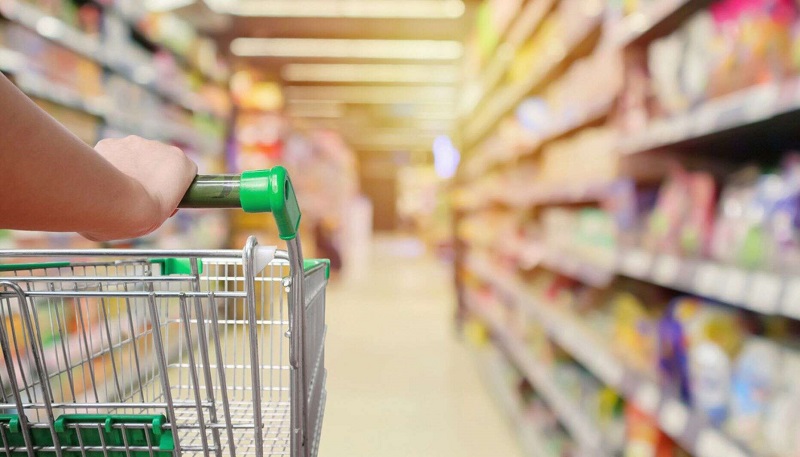
Grocery stores are one of the few hot spots that remain a cause of concern in terms of social distancing, especially in aisles that are tight.
So what can you do to stay safe during grocery store visits?
While scientists have proven that you can get COVID-19 from surfaces, the most likely way one could contract the virus during trips to the supermarket would be from another shopper, reports Fox News.
"While it is possible to contract the virus [from contaminated surfaces], the majority of transmission is probably going to be from respiratory droplets, which you're exposed to when you're around other people," Angela Rasmussen, a virologist at the Center for Infection and Immunity at Columbia University's Mailman School of Public Health told NPR.
She added that washing your hands thoroughly would leave your risk "very, very low" after touching certain objects.
The Centers for Disease Control and Prevention (CDC) of the USA has agreed the main way the virus can spread is from person to person interacting in close proximity through respiratory droplets in the air. This includes speaking, coughing or sneezing — even if that individual doesn't have a fever or is not showing symptoms.
That's why the agency has recommended staying six feet away from other people — a typical grocery cart is about three feet long, which means two carts would equal the six feet social distancing recommendation by the CDC.
Other experts say to limit visits to the store. You should also have a plan or make a list before you go in so you can be as efficient as possible during trips.
"Be as efficient as possible in the store," Donald Schaffner, a food microbiologist and distinguished professor at Rutgers University told the media organization. "Have a list. Move through the store quickly and efficiently. Get out of the way. Be respectful of other people. Maintain social distance while you're in the store."
He added to look for stores that limit the number of people going inside. All stores are disinfecting before they open in the morning, so early hours could theoretically be the cleanest or the highest-trafficked for that reason.
When inside, Lauren Sauer, director of operations for Johns Hopkins Office of Critical Event Preparedness and Response, recommends staying away from busy aisles and making sure to stand six feet away from the person in front of you at the checkout line.
“When you’re walking through the store, the hardest part is passing people in the aisle,” Sauer told the USA Today. “Really avoid passing closely by people when you can."
Dr David Aronoff, director of the Division of Infectious Diseases at Vanderbilt University Medical Center, says to go to the store alone if possible.
The Food and Drug Administration (FDA) said last month there is currently no evidence of food or food packaging being associated with the transmission of COVID-19.
However, the National Institutes of Health (NIH), CDC, UCLA, and Princeton University scientists found the virus can remain infectious in droplets in the air for hours and surfaces for days.
Rachel Graham, a virologist who studies coronaviruses at the University of North Carolina's Gillings School of Global Public Health says if your still worried about refrigerated goods packages -- as the virus can live up to 24 hours on cardboard -- she says to leave it out for that time period, according to NPR.

Graham added that freezing foods helps the virus stay alive longer, so she recommends taking it out of the packaging. It's recommended to bring an alcohol-based sanitizer to the supermarket along with some disinfectant wipes, if available.
Benjamin Chapman, a professor of food safety at North Carolina State University told the Wall Street Journal he believes the best reason to bring wipes is to wipe down your grocery cart. They can also be used for high-risk areas in the store like refrigerator or freezer handles.
Even so, he added that “the biggest risk factor is really being around other people."
California Grocers Association recommended not picking up items unless you plan to buy them, and if you use reusable bags, make sure to wash or disinfect them after each use.
If you're still worried about shopping in stores, ordering groceries online is also an option.
(Source: Foxnews)
/at/teb